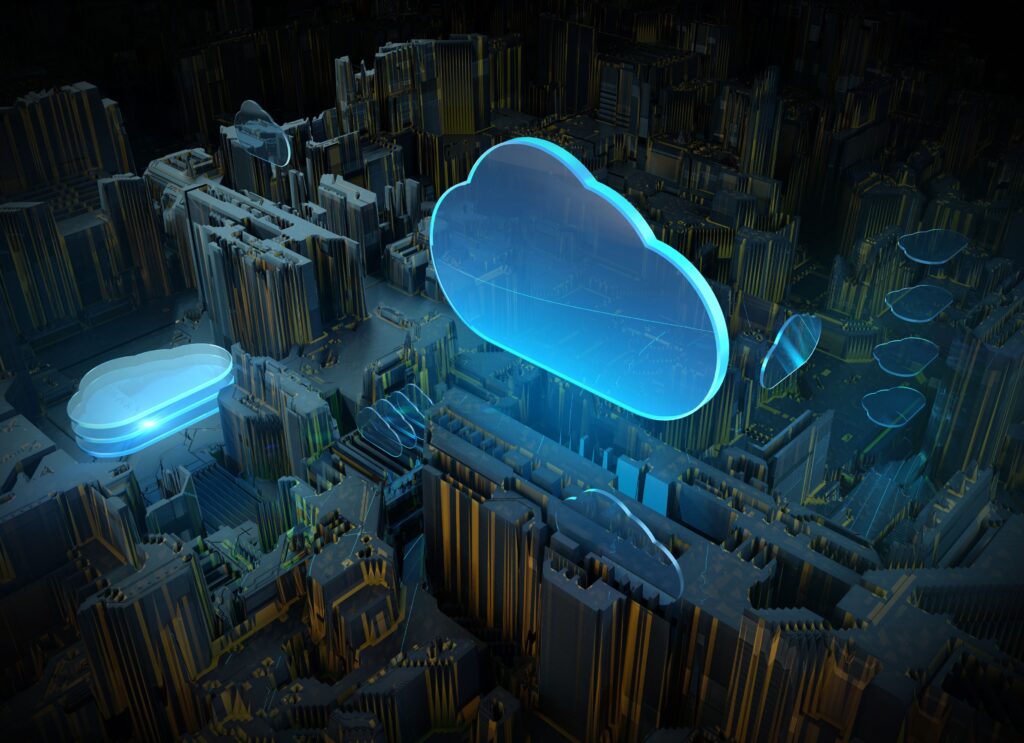Cloud Security Architecture: How Mid-Sized Companies Can Protect Their Data in the Cloud
In an increasingly digital world, implementing a strong Cloud Security Architecture has become one of the biggest challenges for businesses—especially for mid-sized companies that often lack the resources of large corporations. A tailored Cloud Security Architecture is key to protecting sensitive information from cyberattacks and data loss. Learn why a well-thought-out security architecture is essential for business success and how it can be customized to meet individual needs. A robust cloud security solution provides crucial advantages to ensure optimal protection in the digital future.
Challenges in Cloud Security
The cloud offers companies numerous benefits, such as flexibility and scalability, but it also introduces a variety of security risks. For mid-sized businesses, developing an effective cloud security architecture that addresses current threats and meets specific company requirements can be challenging. One of the biggest challenges is protecting against external attacks. Hackers and cybercriminals are becoming increasingly sophisticated, and unauthorized access to cloud data can have disastrous consequences.
However, external threats are not the only critical factor. Managing and controlling user access and data flows within the cloud are equally important. Insufficient cloud security architecture can create gaps in access control, leaving systems vulnerable to potential attackers. Additionally, mid-sized companies often struggle to integrate their security solutions with complex cloud services and infrastructures without disrupting operations. It is therefore crucial to develop a tailored security strategy that ensures protection against attacks while enabling seamless integration into the existing IT environment.
What Is Cloud Security Architecture?
Cloud security architecture is a strategic approach to safeguarding data and applications in the cloud from threats. It encompasses a range of security measures designed to protect sensitive information during both transmission and storage. A well-designed cloud security architecture consists of multiple layers that together form a robust line of defense. These include encryption technologies, access controls, authentication procedures, and continuous monitoring. The goal is to minimize potential vulnerabilities while ensuring that cloud services operate smoothly and efficiently.
Cloud security architecture goes beyond traditional network protection by addressing the unique characteristics and risks of cloud environments. It ensures that all data, whether at rest or in transit, is protected against unauthorized access, manipulation, or loss. When fully implemented, such an architecture forms the backbone of secure cloud usage, allowing companies to store and process their data securely without compromising the flexibility and agility of the cloud.
Best Practices for a Successful Cloud Security Architecture
To ensure a robust and secure cloud security architecture, it is essential to follow best practices and standards that maximize the protection of data and applications. One key approach is the implementation of multilayered security measures, often referred to as “Defense in Depth.” This method ensures that attackers must overcome multiple barriers to access sensitive data. An effective cloud security architecture should combine various protection layers such as firewalls, intrusion detection systems (IDS), and encryption.
Another cornerstone of cloud security is the Zero Trust model. This approach assumes that no user or device is automatically trusted, requiring every access request to be continuously verified. This means that all requests to access cloud data or applications are validated, regardless of whether they originate inside or outside the corporate network. Regularly reviewing and updating security measures is also critical to keeping pace with evolving threats. A well-conceived and frequently tested incident response plan is another vital component of any cloud security architecture.
ISO 27001: The Gold Standard for Cloud Security – What Is ISO 27001?
ISO 27001 is an internationally recognized standard for information security management that helps organizations systematically protect their data. The standard outlines requirements for establishing, implementing, monitoring, and continuously improving an information security management system (ISMS). For companies looking to protect their cloud data, ISO 27001 provides a structured framework for developing a secure cloud security architecture that meets the highest standards.
ISO 27001 as the Basis for Cloud Security
Implementing ISO 27001 within a cloud security architecture offers numerous benefits. The standard not only ensures the protection of cloud data but also guarantees that all processes and security measures are documented. By adopting ISO 27001, organizations can identify risks early and implement appropriate safeguards to mitigate threats. Furthermore, regular reviews and certifications under ISO 27001 drive continuous improvement of security practices, ensuring that all security processes remain up-to-date.
Benefits of ISO 27001 Certification for Cloud Security
ISO 27001 certification demonstrates to business partners, customers, and stakeholders that a company has implemented the necessary security measures. For mid-sized businesses, this certification signals trust and transparency in establishing or enhancing cloud security architecture. It ensures cloud infrastructure meets top security standards and is regularly assessed to address emerging threats.
Centron’s Data Center: Your Secure Foundation
Centron’s data center is more than just a place to store data. It is the foundation of a secure cloud security architecture tailored to the needs of businesses. Centron offers a reliable base for securely storing and processing sensitive cloud data with state-of-the-art infrastructure.
Centron’s data center complies with all ISO 27001 certification requirements, making it one of the safest locations for managing cloud data. By choosing Centron as your partner, you benefit not only from cutting-edge infrastructure but also from expertise and experience in IT security. The data center offers not only the necessary protection but also the flexibility to adapt to the individual requirements of your cloud security architecture. Whether you are planning a private cloud, hybrid solutions, or integration into existing IT systems, Centron ensures that your data remains secure and protected at all times. Contact us today for a no-obligation consultation and learn how we can optimize your cloud security architecture.
You might be also interested in
Multicloud Solutions for Maximum Reliability
Cloud Reorganization: KKR acquires VMware’s EUC Business
Cloud-Computing 2024: Getting ready for the 10 leading Trends


